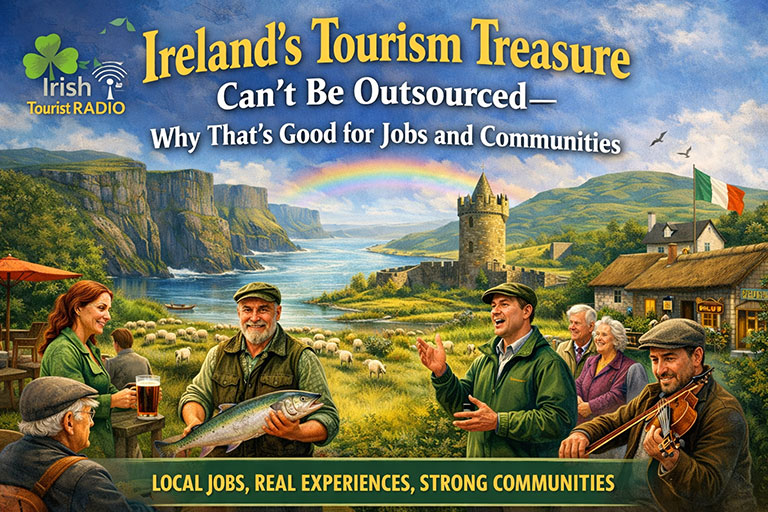While the centuries-old freedom of movement between Ireland and Great Britain has largely survived Brexit‘s bureaucratic reshuffling, Irish tourists now face a landscape of subtly altered regulations—a paper trail of post-Brexit realities that neither eliminates the ease of cross-border travel nor leaves it entirely untouched.
The good news for Irish citizens remains steadfast: they’re exempt from the UK’s new Electronic Travel Authorisation scheme set to unfold in 2025. This £16 permission slip—required for multiple visits over two years for non-British and non-Irish travelers—won’t burden those with Irish passports. The Common Travel Area endures as a quiet reminder of the special relationship between these neighboring islands.
Irish citizens remain blissfully exempt from the UK’s new travel paperwork shuffle—a bureaucratic nod to centuries-old connections.
However, paperwork follows everyone these days—even the Irish. Border Force officers can (and increasingly do) request valid passports when traveling from Ireland to Great Britain proper. Gone are the carefree days of hopping across with just a driver’s license tucked away and a hopeful smile.
Carriers now verify documents before boarding, creating that unmistakable pre-flight ritual of passport-fumbling that was once invigoratingly absent on this route.
What hasn’t materialized, despite swirling rumors, is any specific ban on common personal items Irish tourists might bring along. No, your tayto crisps aren’t contraband—yet. Standard customs regulations apply as they would for anyone entering the UK: restrictions on firearms (obviously), certain foods, plants, and animal products. Non-Irish residents of Ireland from visa-exempt countries do not need an ETA when traveling from the Common Travel Area.
The ETA allows visitors a maximum stay of 6 months in the UK without requiring additional documentation.
The border hasn’t suddenly developed an allergic reaction to Irish belongings.
The real change lies in the heightened awareness—that slight tension in the shoulders when approaching customs, the mental inventory of suitcase contents, wondering if that jar of homemade jam might trigger an international incident. It’s the psychological border that’s thickened more than the physical one.
For Irish travelers, the journey across the Irish Sea remains remarkably unchanged in substance, if slightly altered in formality—a paperwork pirouette that acknowledges the new reality while preserving the ancient right of passage between these historically entangled nations.









